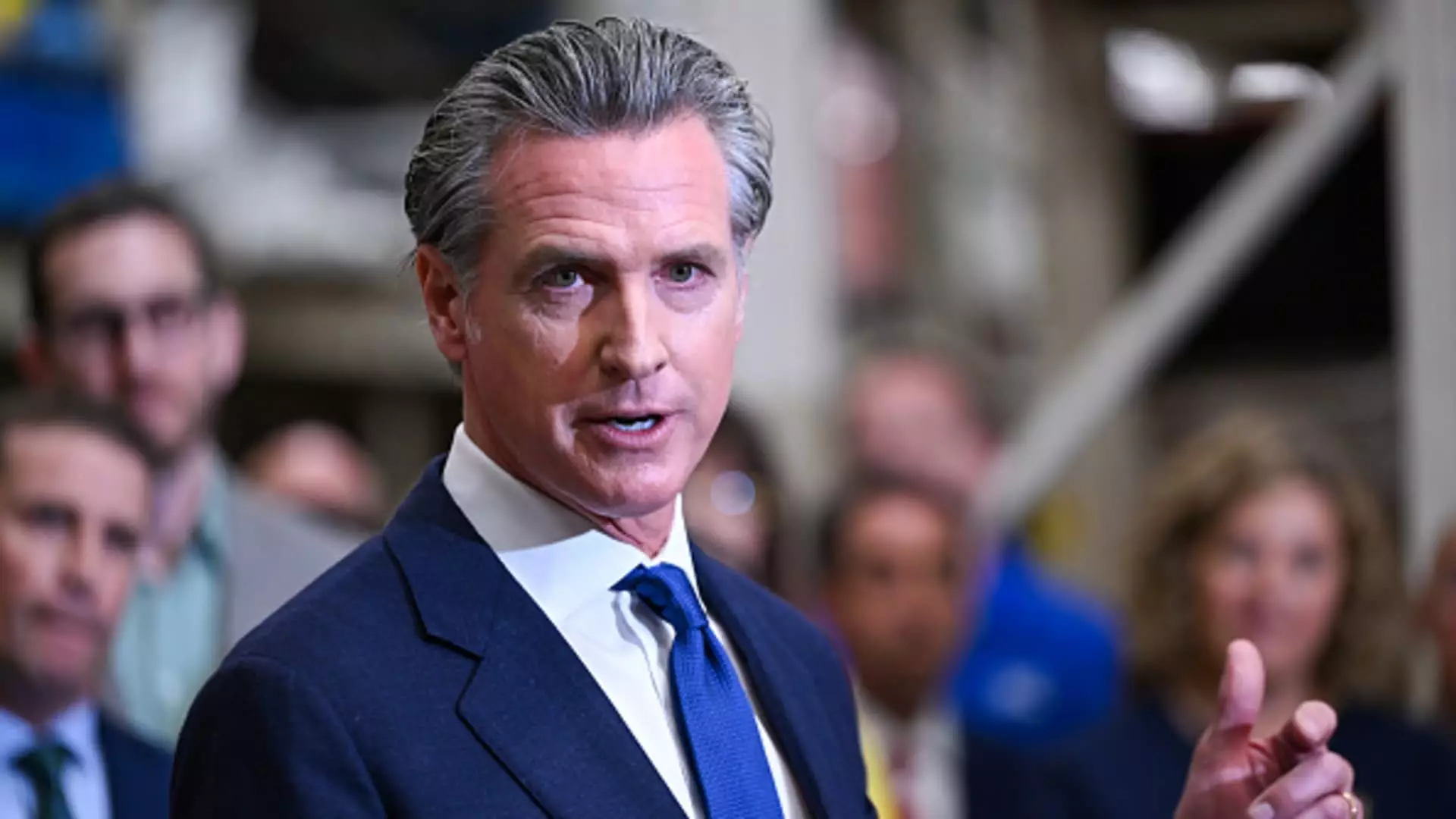As the dust settles from the recent national election, California is gearing up for a showdown with the incoming Trump administration. Governor Gavin Newsom convened an extraordinary legislative session aimed at erecting a plethora of defenses against what he perceives as potential federal overreach. This move, which begins on Monday, emphasizes the state’s proactive stance to safeguard its values and policies amidst a highly polarized political landscape. With an ambitious proposal to establish a $25 million litigation fund, Newsom is positioning California to confront “policy proposals that would harm the state.” The funds will target issues of reproductive rights and environmental protection, among others, indicating that the state sees these areas as particularly vulnerable under the new administration.
The proposed litigation fund represents not just a financial decision, but also a strategic commitment to resist potential encroachments on California’s policies. The funds would be allocated to the California Department of Justice and other state agencies, allowing them to mount court challenges and launch administrative actions against federal directives. This planned legal battleground echoes the extensive litigation that characterized Trump’s first term, during which California engaged in 122 lawsuits against the federal government, investing an impressive $42 million. The outcome of those legal battles provided significant financial relief and protection for various state interests, underscoring a template for what may come next.
In anticipation of an aggressive federal agenda, Newsom contends that California has a duty to protect its residents. Reflecting on the challenges that await, he has called for a firm stance to ensure that California does not lose its identity or governing capability amidst national shifts. “We need to assert ourselves,” Newsom proclaimed, emphasizing the state’s pivotal role in shaping national discourse and policy.
Critics Respond: The Political Landscape Shifts
The response from the Trump administration, articulated through spokesperson Karoline Leavitt, highlights a stark contrast in priorities between Washington and Sacramento. Leavitt’s assertion that President Trump “will pursue his agenda despite efforts by Newsom to ‘Trump-proof California'” reflects a broader sentiment among conservatives who view California’s liberal policies as out of step with national interests. With Trump garnering significant votes in California—a reflection of his sustaining support even in a traditionally Democratic state—these tensions are likely to escalate.
As conservative figures, including district attorneys and mayors, gain traction within California, the legislative session has broader implications. The election results indicate a shift, albeit subtle, toward more conservative governance in key areas. With district attorneys like Nathan Hochman in Los Angeles winning significant races, and propositions designed to toughen penalties for certain crimes passing despite recent movements towards criminal justice reform, it seems the state is wrestling with itself—a reflection of an electorate divided on issues of crime, justice, and appropriate governance.
Among the areas of potential federal overreach, California’s environmental policies are poised for a critical moment. Governor Newsom has committed to restarting the Zero Emission Vehicle rebate program if federal tax credits for electric vehicles are diminished under Trump. However, scrutiny is already emerging from notable stakeholders in the auto industry, including Tesla CEO Elon Musk, who criticized the proposed limitations that would affect Tesla’s models. Musk’s remarks underscore a tension between state innovation and federal policy shifts—a dynamic that will define the future of California’s green initiatives.
Newsom’s administration has made clear that while they are willing to collaborate with the incoming Trump administration, their primary commitment is to protect California’s interests. “California is a tent pole of the country,” asserted Newsom, framing the state as a leader in economic, social, and environmental progress. This dual approach of engagement coupled with resistance suggests a nuanced strategy designed to balance collaboration and confrontation.
A Legislative Session with Long-term Implications
As legislative hearings unfold in the coming weeks, the outcomes could set pivotal precedents not just for California, but for states nationwide. The potential for legal confrontations will demand a careful examination of states’ rights versus federal powers, especially as California navigates the shifting tides brought on by a new administration. As voters prioritize economic stability—and with caution against social polarization—California’s trajectory may become an essential case study in the current political landscape.
California is bracing for what could be a protracted legal battle driven by an ethos of self-preservation against federal policies perceived as detrimental. The legislative measures undertaken by Newsom’s administration represent more than mere resistance; they symbolize a clarion call for states to assert their rights in the wake of federal encroachment—a phenomenon likely to echo throughout the American political narrative in the coming years.


Leave a Reply